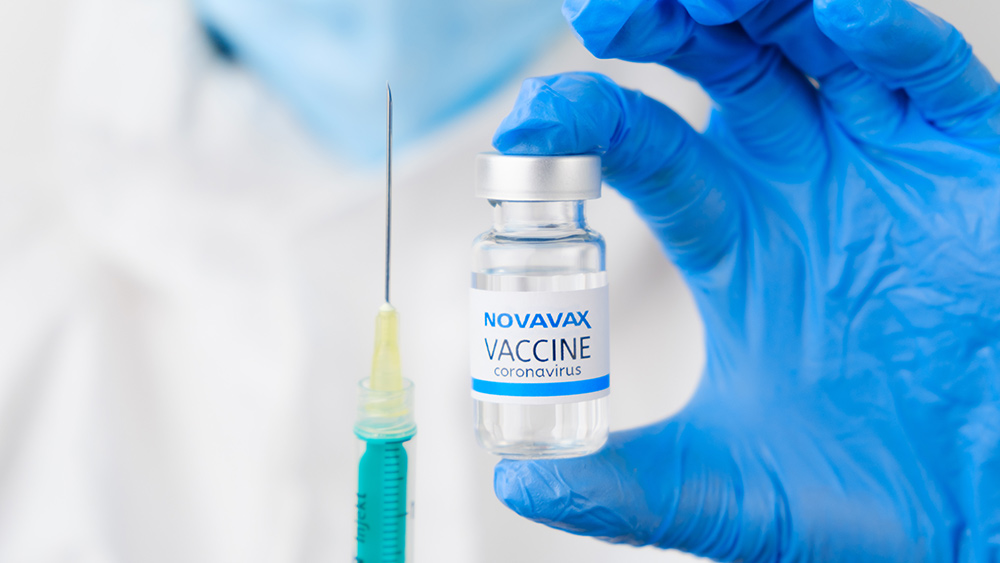Regular olive oil consumption found to reduce mortality risk
06/06/2022 / By Zoey Sky

Olive oil is a popular cooking oil because it contains antioxidants and healthy fats. According to a study conducted by researchers from the American College of Cardiology, consuming olive oil regularly is also linked to a lower risk of some severe medical conditions, such as heart disease and cancer.
The study was published in the Journal of the American College of Cardiology.
During the study, the research team found that respiratory disease mortality and neurodegenerative disease mortality are also less common in individuals who consume over seven grams of olive oil per day.
Additionally, replacing 10 grams of butter, mayonnaise and dairy fat daily with the same quantity of olive oil helped significantly reduce mortality risk.
Dr. Marta Guasch-Ferre, the study’s first author, said the results support current dietary recommendations to “increase the intake of olive oil and other unsaturated vegetable oils.”
She added that clinicians should advise patients to replace certain fats, like butter and margarine, with olive oil to improve their well-being. The study findings can be used to make more specific recommendations that will be easier for patients to understand and implement into their regular diets. (Related: Study links olive oil intake to reduced heart disease and Alzheimer’s risk.)
Olive oil consumption and lower disease risk
For the study, the scientists analyzed the diets of more than 30,000 men and over 60,000 women. All the volunteers were disease-free when the trial began in 1990.
The volunteers filled in surveys every four years to track their average fat and oil consumption. For the surveys, olive oil intake was measured on how often a volunteer used it:
- On salads
- While baking
- While cooking
- When adding it to other meals and bread
In the study, one tablespoon equaled more than 13 grams of olive oil.
The scientists discovered that volunteers who consumed the most olive oil daily were 19 percent less likely to die from cardiovascular disease and 17 percent less likely to die from cancer. Results also showed that they were more protected from neurodegenerative mortality and respiratory mortality.
Guasch-Ferre explained that it is possible that higher olive oil consumption could be considered “a marker of an overall healthier diet and higher socioeconomic status.” After adjusting for these and other social-economic status factors, the study results remained largely the same.
She noted that the study cohort was made up mainly of a non-Hispanic white population of health professionals, which should minimize potential confounding socioeconomic factors. However, the study cohort may also limit generalizability as this population “may be more likely to lead a healthy lifestyle.”
The results showed that people with a higher olive oil intake were more likely to have an active lifestyle, follow a healthy diet and more likely to be non-smokers.
Tips for incorporating olive oil into a balanced diet
Olive oil is the natural oil extracted from olives that come from olive trees. It is made up of 14 percent saturated fat and 11 percent polyunsaturated fat, like omega-6 and omega-3 fatty acids.
The predominant fatty acid in olive oil is oleic acid, a monounsaturated fat that makes up a whopping 73 percent of its total oil content.
Research suggests that oleic acid helps minimize inflammation. It may also have beneficial effects on genes linked to cancer.
Since monounsaturated fats are very resistant to high heat, extra virgin olive oil is a healthy choice for cooking.
Here are some suggestions on how to use more olive oil:
- Use olive oil in sauces. Whisk to emulsify or blend the watery ingredients with the oil in the sauce.
- Use olive oil instead of butter or margarine as a healthy dip for bread. Pour a little olive oil into a small side dish, then add a bit of balsamic vinegar.
- Drizzle olive oil in a salad or add it to salad dressing.
- Use olive oil in marinades or sauces for meat, fish, poultry and veggies.
- Add olive oil at the end of cooking for a healthy flavor boost.
- Drizzle olive oil over cooked pasta or vegetables before serving.
Follow a balanced diet and replace butter or dairy fat with olive oil to boost your overall health.
Watch the video below to know more about the amazing health benefits of olive oil.
This video is from the Holistic Herbalist channel on Brighteon.com.
More related stories:
5 Reasons to use cold pressed olive oil, a cooking oil full of healthy fats.
4 Amazing health benefits of antioxidant-rich olive oil.
The brain-boosting benefits of high-quality olive oil.
Sources include:
Submit a correction >>
Tagged Under:
alternative medicine, food is medicine, food science, functional food, healthy fats, longevity, mortality risk, natural health, natural medicine, olive oil, prevention, research
This article may contain statements that reflect the opinion of the author




















